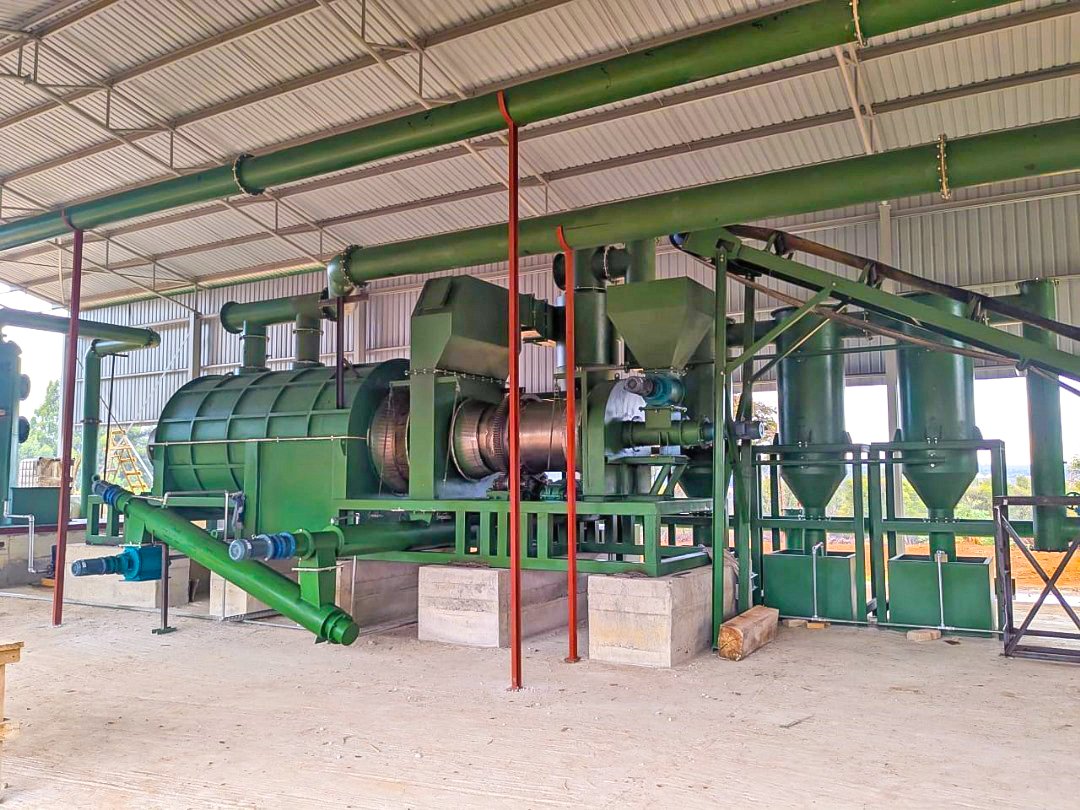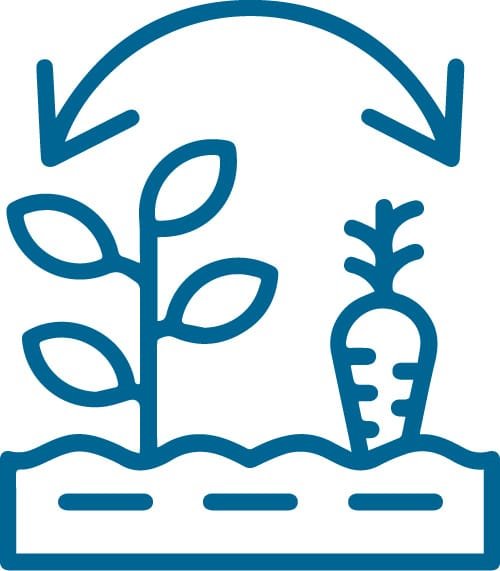Carbon
Removal
We have recently launched Biochar and Agroforestry carbon removal projects, to deliver additional value to those at climate risk. Find out more below.
Project Technology:
Biochar & Agroforestry
Project Standards:
In Development
Project Locations:
Mozambique, Tanzania
Projects Underway:
Coming soon
Project Overview:
Carbon removal projects are vital for Africa, where land restoration and sustainable agriculture can significantly contribute to both climate mitigation and improved food security. Agroforestry and Biochar projects in Africa create transformative resilience to climate change, with the potential to sequester gigatonnes of CO2 annually.

Carbon Removal: Biochar
Launching Tanzania's First Large-Scale Biochar Initiative:
We are pioneering one of the continent's initial large-scale Biochar projects in rural Tanzania, aimed at addressing critical agricultural challenges. In Tanzania, agriculture employs 75% of the total workforce, yet farmers face severe hurdles: fertilizer prices surged by 39% between 2021 and 2022, land degradation affects 13% of the total land area, and climate change further threatens their livelihoods. Biochar presents a sustainable solution to improve agricultural lands, countering these issues effectively.
Biochar:
A Sustainable Solution for Waste Management and Carbon Removal.
Smart Waste Management:
Biochar addresses waste challenges by converting low-value biomass (e.g., nut shells, wood shavings, corn husks) into valuable agricultural feedstock, avoiding burning or landfill dumping.
Soil Health Restoration:
Biochar is a powerful soil enhancer which can increase water and nutrient retention while improving soil structure as well as microbial activity which contributes to the restoration of degraded soils.
Increased Crop Yields:
The improved soil conditions from biochar application lead to higher crop productivity, directly benefiting smallholder farmers.
Economic Benefits for Farmers:
Enhanced crop yields and reduced need for irrigation and fertilizers boost farmers' profits, increasing household incomes as well as food stability.
Carbon Sequestration:
With over 100 years of permanence, biochar ensures long-term, contained carbon storage in the soil.
The Technology Behind the Solution
Machine type: Pyrolysis
The most important distinction between biochar projects is the level of technological sophistication. While earth kilns and kon-tiki's are cheaper and can be used by farmers themselves, their emissions can’t be accurately monitored and the resulting biochar is usually of much lower quality. This project uses an industrial biochar machine with emissions controls and heat utilization in place.
Machine Benefits:
Created as a semi-modular system to allow for additional scale over time.
The pyrolysis reactor can process three tons of feedstock per hour.
The excess heat will be utilized for the drying of the feedstock.
All emissions and potential pollutants are captured and processed.
Biochar is then distributed to farmers who are already working with our local partner and are located close by.

Key Benefits:
From Soil Health to Economic Growth
Reduced Fertilizer Needs:
Biochar is a powerful soil enhancer which increases the ability of the soil to store nutrients. It prevents nutrient leaching and reduces the need for fertilizers. Considering the rising fertilizer prices, this has a profound impact on the profits of smallholder farmers.
Drought Resilience:
Biochar increases the water holding capacity of soils. The biochar particles can store water in their pores which can only be drawn out by plant roots. This protects soils from drying out quickly, reduces irrigation needs and increases drought resilience.
Increased Crop Yields:
Biochar has a wide spectrum of functions which can restore and improve soils. Examples are the increase in water and nutrient holding capacity, immobilization of contaminants, increase in beneficial microbial populations etc. all of which lead to a significantly higher overall crop yield.
Combat Soil Acidity:
Soil acidity is a widespread problem in Tanzania. Biochar can counter soil acidity and increase the pH to create better growing conditions.
Local Employment:
The project creates numerous jobs for members of the local community ranging from unskilled work to engineering and finance.

Carbon Removal: Agroforestry
Mozambique's Groundbreaking Agroforestry Project to Restore Degraded Lands.
In the past two decades, Mozambique has witnessed a significant loss of 15% of it’s tree cover, primarily due to unsustainable land management by smallholder farmers. Addressing this challenge, our project aims to convert degraded agricultural land into flourishing agroforestry systems. By linking community livelihoods with land restoration, we aim for lasting impact beyond the life of the project.

Agroforestry in Nampula:
The Case for Sustainable Land Restoration
The Project:
To revitalize approximately 1,500 hectares of degraded agricultural land in Nampula, Mozambique, through the implementation of productive agroforestry systems.
Environmental Impact:
This initiative directly addresses the root cause of 90% of Mozambique's deforestation—small-scale agriculture—by promoting sustainable land management practices.
Agroforestry Systems:
The project will introduce community-managed agroforestry systems and complemented by the establishment of buffer zones. These zones are designed to protect water bodies and provide habitats for local wildlife, enhancing biodiversity.
Social Impact:
Beyond its environmental benefits, the project is poised to generate significant social impact through job creation and community engagement. It aims to improve livelihoods, ensuring permanence and the potential for replication across the Nampula region.
Partnership for Progress:
In collaboration with a dedicated local partner, who possesses strong ties to the land and the community, this project stands as a beacon of sustainable development. The partnership underscores a commitment to both the land's restoration and the prosperity of its people.

Key Benefits of the Nampula Agroforestry Project:
Sustainable Land Use:
Transforms degraded land into productive agroforestry systems, promoting environmental sustainability.
Deforestation Reduction:
Targets the primary cause of deforestation in the region, offering a viable alternative to slash-and-burn practices.
Biodiversity Enhancement:
Establishes buffer zones to protect natural water sources and create wildlife habitats, enriching local biodiversity.
Community Empowerment:
Engages local communities in management practices, providing jobs and improving livelihoods through enhanced agricultural productivity.
Economic Growth:
Boosts crop yields, provides beekeeping training and hives, diversifies income with nuts and fruits, ensuring soil fertility for future generations.
Scalable Model:
Demonstrates a replicable and scalable model for sustainable agriculture and land management across Mozambique.

Let’s Build Something Together
If you'd like to learn more or ask any questions, then do reach out to Polly, our dedicated Climate Finance Manager:
partnerships@upenergygroup.com
UpEnergy is a social enterprise headquartered in Kampala, Uganda.































